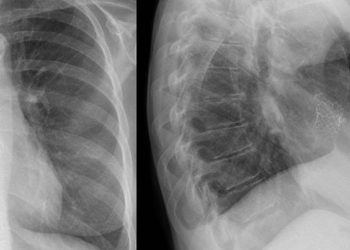Emergency general surgery linked to greater risk of venous thromboembolism than elective surgery
1. Patients undergoing emergency general surgery in a retrospective cohort study were at nearly twice the risk of venous thromboembolism when compared to patients undergoing elective surgery.
Evidence Rating: 2 (Good)
Despite comprising a relatively small proportion of the total surgeries performed, procedures classified as emergency general surgery (EGS) account for a significant portion of postoperative complications and mortality. To date however, no studies have established an association between risk of venous thromboembolism (VTE) and EGS, leading to a knowledge gap that may have prevented patients benefiting from more aggressive VTE chemoprophylaxis. In this retrospective cohort study, researchers examined data from 604,537 adult patients in the American College of Surgeons National Surgical Quality Improvement Program database over a 12 year period to investigate a possible link between VTE risk and EGS. Data from emergency surgeries were compared with elective surgeries of the same type, largely consisting of laparoscopic and open cholecystectomies, ventral hernia repairs (VHRs), and partial colectomies (PCs), with the primary outcome of interest being VTE occurrence at 30 days. After controlling for age, sex, BMI, surgery type, and other demographic features, it was found that VTE rates were significantly higher in the EGS patient group than the elective surgery group (1.9% vs. 0.8%; P < .001), with nearly triple the rate of DVT or thrombophlebitis (1.4% vs. 0.5%; P <.001), and double the rate of pulmonary embolism (0.6% vs. 0.3%; P <.001). In concordance with prior literature, patients undergoing EGS were also more prone to surgical site infections, general complications, major complications, and had higher rates of 30 day readmission and 30 day mortality. This study represents the first investigation finding an independent association between EGS and VTE risk, and provides further evidence of greater morbidity and mortality associated with EGS compared with elective surgeries. As VTE are a highly preventable cause of morbidity and mortality among hospitalized patients, findings from this study support the use of more aggressive venous thromboembolism chemoprophylaxis and may be a new standard of practice with further investigation.
Click to read the study in JAMA Surgery
Image: PD
©2020 2 Minute Medicine, Inc. All rights reserved. No works may be reproduced without expressed written consent from 2 Minute Medicine, Inc. Inquire about licensing here. No article should be construed as medical advice and is not intended as such by the authors or by 2 Minute Medicine, Inc.







